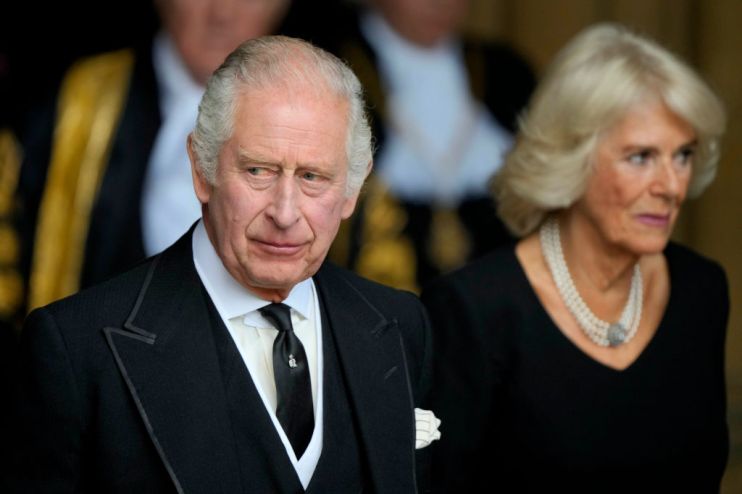King Charles III will need to give the royal family a facelift for a modern era

It is easy to feel great sympathy for our new sovereign, King Charles III. It is less than a week since his mother, with whom he had a very close relationship, died at the great age of 96, and there is no time for him to grieve or even adjust. Indeed, in many ways, his life is only just beginning, at 73, as he finally takes over the role for which he has been destined since birth. His emotions must be managed in the margins as he leads the royal family in public.
Elizabeth II reigned for longer than any monarch we have had. So to describe her death as a watershed is an understatement: it is a multi-generational transformation, a turning of the page, even chapter, and it now falls to the King to chart the monarchy’s course in this new age.
The British monarchy is founded on tradition. We can date it at least to the raising of Æthelstan to King of the English in AD 927, and many of its rituals and relics are almost unimaginably old. This sense of antiquity is important: any hereditary monarchy must rely in part on the idea that it exists because it has always existed. But it is also a demonstration of the need to evolve in order to survive, and the best of our rulers have understood this idea and made it reality.
The King there is presented with a challenge: how does he change and “modernise”, while retaining the essence and power of tradition? We were given some cues in his address to the nation last week. He affirmed that he understood, and therefore accepted, the essential parameters within which he must now operate.
“I shall strive to follow the inspiring example I have been set in upholding constitutional government,” he said, “… and in the discharge of these duties I will be guided by the counsel of their elected parliaments.”
This may not be revolutionary, but it is important: it restates the underlying principles on which our system of government operates.
As heir to the throne, Charles sometimes chafed against the restraints imposed on him. He has strong views on a range of matters, particularly in terms of the environment, sustainability and architecture, and has not been afraid of expressing these in striking terms.
In 1990, he told RIBA “You have to give this much to the Luftwaffe. “When it knocked down our buildings, it didn’t replace them with anything more offensive than rubble. We did that.” Famous, too, were his so-called “black spider” letters, notes in his crabbed handwriting to ministers and others expressing his views on matters of policy.
But the King knows his position has changed, and he no longer has that freedom. When he spoke of “the duties and heavy responsibilities of sovereignty”, it is not a stretch to imagine this was on his mind. For outspokenness he must rely, to some extent, on his heir Prince William, now Prince of Wales, who shares many of his father’s passions.
The King has also long hinted that he wants a slimmed-down monarchy, with fewer key members carrying out official duties. This will happen partly through natural wastage: now he is at the top of the tree, he has the Wales, the Wessexes and the Princess Royal, but Prince Andrew is in (probably permanent) exile, the princesses of York are not full-time royals and the status of Harry and Meghan remains unclear. The next dukes of Kent and Gloucester will not be royals, and Prince Michael is 80 years old.
It is desperately early in the King’s reign. But from this vantage point, we can expect a more politically remote, but perhaps more personally empathetic, Charles to emerge, conscious of his symbolism now more than his influence (though the prime minister can expect brisk audiences every Tuesday). The late Queen’s immediate family will become the core members of a royal family which will continue to represent many of the virtues we might all wish we possessed.
Beyond that, let us give the King time. He is a septuagenarian learner, albeit one who has been watching since birth. There will likely be no fundamental changes in how the monarchy works, but he may choose to present a new face. He will not want for advice, and let us hope only that he has the wisdom to see and accept that which is wise.